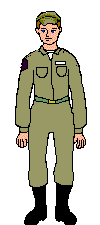OLQ
THE ASSESSMENT OF LEADERSHIP QUALITIES FOR SELECTION OF OFFICERS IN DEFENCE FORCES- PART 2
FACTOR I : PLANNING AND ORGANISING
1. Effective Intelligence. Is the intelligence utilized in coping with practical situations of varying complexity. It is different from basic intelligence which is the capacity to perceive relations or to do abstract thinking. Basic intelligence is assessed by the use of intelligence tests may be verbal or non verbal effective intelligence includes the following:
(a) Practical intelligence. The capacity to evolve independent solutions of practical problems and situations.
(b) Resourcefulness. The capacity to use the available means for the desired end with the help of improvisation of resources and finding a solution when in a tight corner.
* Generally students with higher effective intelligence are bright, mentally sharp, penetrating, innovative and inventive.
2. Reasoning ability. The ability to grasp the essentials well and to arrive at conclusions by rational & logical thinking. It includes receptivity, inquiring attitude, logical reasoning and seeing essentials of a problem.
(a) Receptivity. The ability to understand and absorb new impressions. It involves interest, attention and grasping power.
(b) Inquiring attitude. Healthy curiosity resulting in an urge to increase one's general knowledge and experience in life.
(c) Logical Reasoning. The ability to arrive at conclusion orudgement based strictly on a presses of rational thinking and excluding emotional factors
(d) Seeing essentials of a problem. The ability which the individual is not only clear in his knowledge of the situation at hand, but also is to analyses various factors, shift them in order of imp;ortance and make best use of them towards achieving a solution.
* Students with higher reasoning ability are exceptionally sharp, analytical, highly imaginative, logical & practical.


